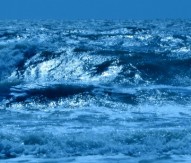
Seals may have carried TB to Americas
New research part-funded by the European Research Council has led to the discovery that seals and sea lions likely brought tuberculosis (TB) to South America before the arrival of European explorers.
Investigations undertaken by the University of Tubingen, Germany, and Arizona State University, USA, reveal that tuberculosis may have had a hand in American Indian deaths prior to the influx of European diseases. The results, the researchers write, provide unequivocal evidence that a member of the Mycobacterium tuberculosis complex caused human disease in the pre-contact New World, long before Christopher Columbus arrived in 1492.
Study researchers also hypothesise that once European tuberculosis strains arrived in the Americas, they completely replaced the prior strains brought over by seafaring animals. This event confused diagnosis of the impacts on Indian populations as researchers struggled to identify which tuberculosis strain was involved in American Indian deaths.
Leading the study, anthropological geneticist Anne Stone, of Arizona State University, said: “We are not sure what the timeframe was for the replacement of American strains by European strains after contact.” She said it was still unclear of the role these strains played on Indian populations.
“It is likely that the new European strain, which is more virulent, was a culprit, particularly since tuberculosis is really good at spreading during times of social crowding and distress,” Stone added.
Africa has the most diversity of tuberculosis strains, suggesting this was the origin of the pathogen. These research results give rise to speculation that humans gave tuberculosis to animals and that within the last 2,500 years, marine animals carried it from Africa to South America, where they gave it back to humans. Research results showed a clear relationship to animal lineages, specifically tuberculosis lineages from seals and sea lions.
The study into pre-Columbian M. tuberculosis genomes is published in the journal Nature.




